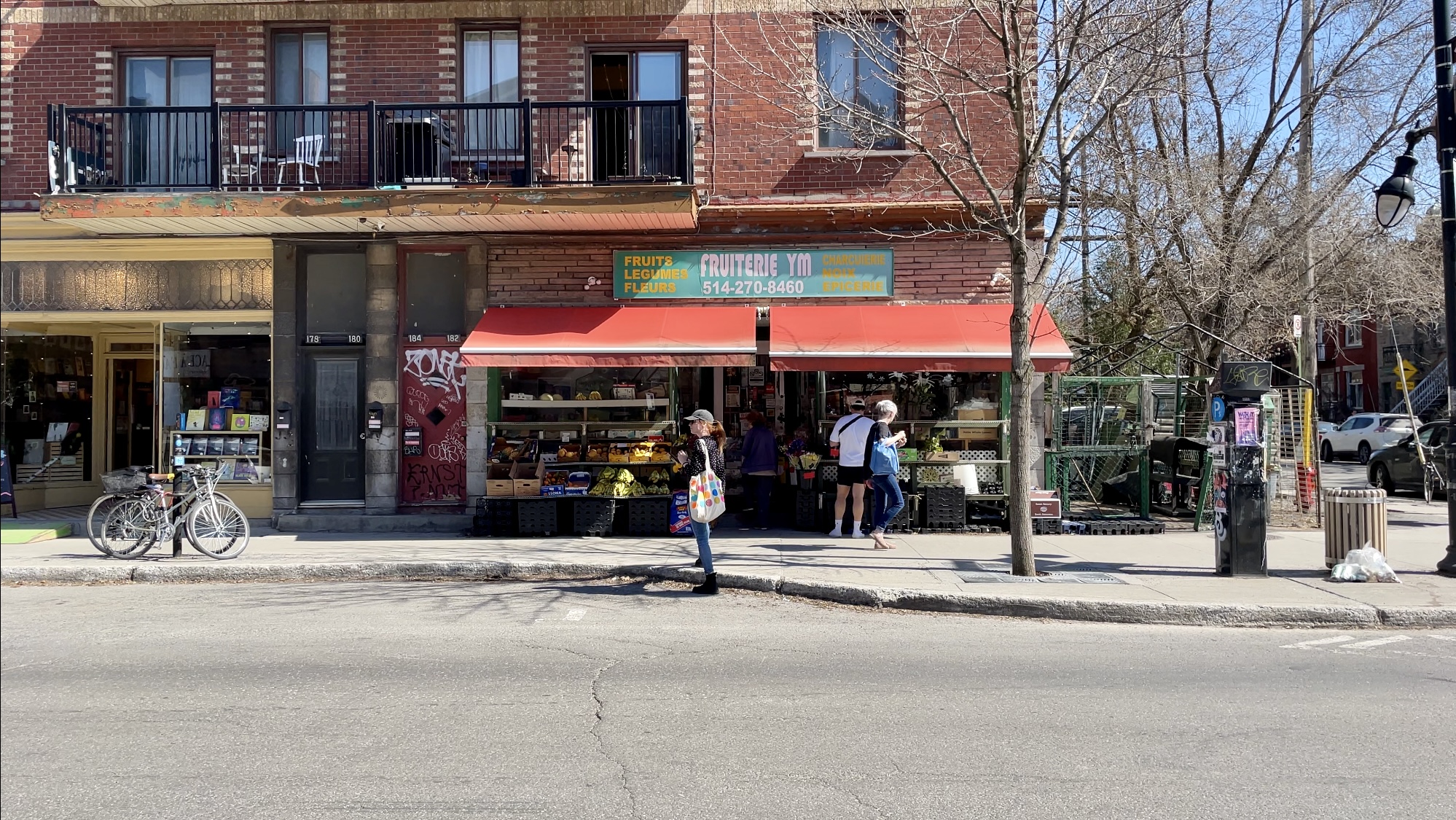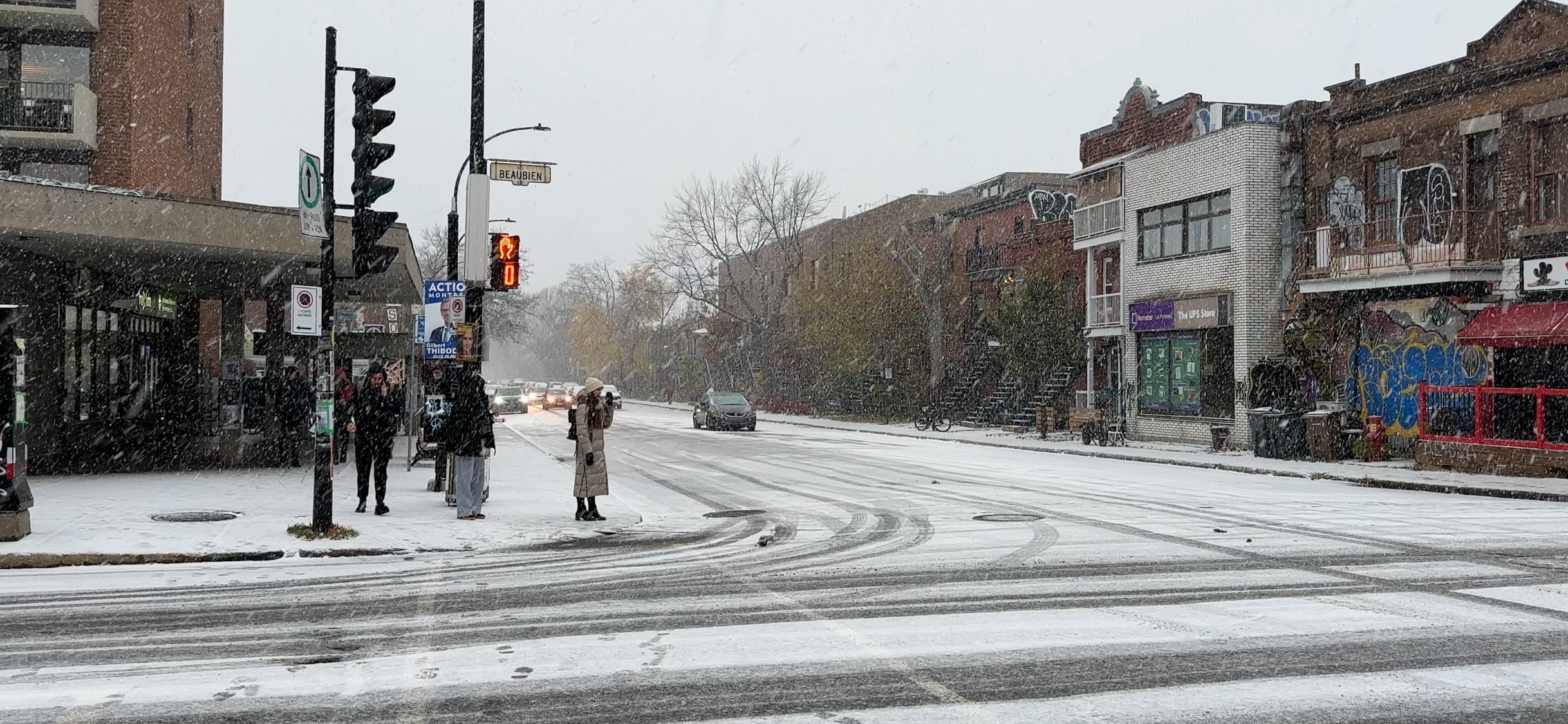Talking Housing and Mobility Ahead of Montreal’s Election

It’s been a busy few weeks for those of us who think about how cities grow and move. Both Kevin Manaugh and David Wachsmuth, Curbcut’s co-founders, have been engaging with the media sharing their expertise in interviews about two of Montreal’s biggest election issues: housing and transportation.
What’s encouraging is that these conversations are happening not just in academic or policy circles, but in the public sphere. The same questions long discussed in research networks and community forums how to build enough housing without losing green space, how to make streets more sustainable without deepening social divides are now at the center of citywide debate.
The housing dilemma
Across the region, stories like the Fairview Forest debate in Pointe-Claire capture the tension perfectly. People want more housing but they also want green space, livable neighbourhoods, and a say in what gets built.
In a recent CBC News interview, Kevin described this tug-of-war as, in many ways, “the price (and privilege) of democracy.” The challenge, he explained, is that our housing needs are urgent, while our decision-making processes often move much more slowly.
As he put it, “We want park space, we want open space, we want commercial areas, we want forests and waterfront - and we need housing.” Every community in Canada is wrestling with that same sentence, trying to balance long-term sustainability with short-term necessity.
Short-term rentals (STRs) like Airbnbs add another layer to Montreal’s housing challenges. While the Projet Montréal administration currently enforces a winter ban, Ensemble Montréal has proposed lifting it and hiring more inspectors to track illegal listings. As David told CBC News, “Having more inspectors would help, but this is solving a problem they’re creating for themselves,” since any ad posted during the ban is already illegal.
In another interview with the Gazette on the same topic, David explains that the relatively new regulations should be given time to take effect: “Relaxing the rules at this point would be a very strange move from the perspective of trying to make sure housing remains affordable in Montreal.”
Bringing research-informed perspectives into these public discussions, helps clarify what’s at stake - not just what’s politically expedient, but what’s structurally possible.
The politics of bike lanes and parking spaces
At the same time, debates over Montreal’s cycling network have become a kind of shorthand for larger questions about who public space is for. Headlines about “too many bike lanes” or “lost parking” often miss a deeper truth: cities everywhere are learning how to share limited space in ways that make them healthier, fairer, and less polluting.
In La Presse, Le Devoir, and on CBC Radio Noon, Kevin underscored that “if we want healthier, happier, and less polluting cities, we need to make tough choices about building bike lanes - even if that sometimes means removing some car parking.”
Having these conversations in the media are important, especially in the context of an election. Bringing research-based ideas into the mainstream dialogue highlights that these issues don’t exist in silos, and can help inform not only voting citizens but more generally how cities think about change.
Beyond the election cycle
Elections have a way of shrinking big questions into short-term slogans. But as both Kevin and David have emphasized, housing and transport aren’t separate issues - they’re deeply intertwined. Where we build determines how we move. And how we move determines where we can afford to live.
Whether it’s a fight over a forest, a new high-rise near a transit station, or a few parking spaces on a busy street, these are all pieces of the same story: how Montreal can grow in ways that are fair, sustainable, and rooted in what the research tells us works.
The question now is how to turn that public energy into lasting, thoughtful change.




